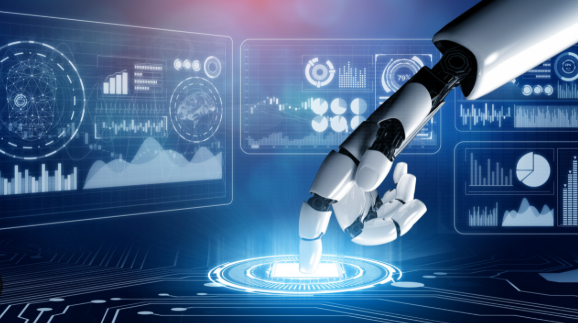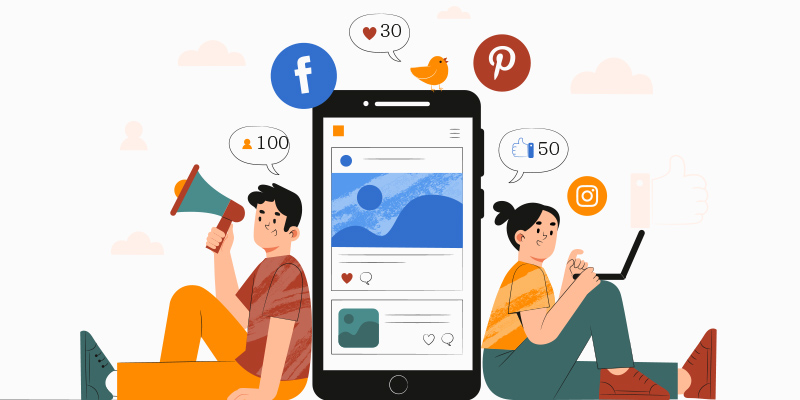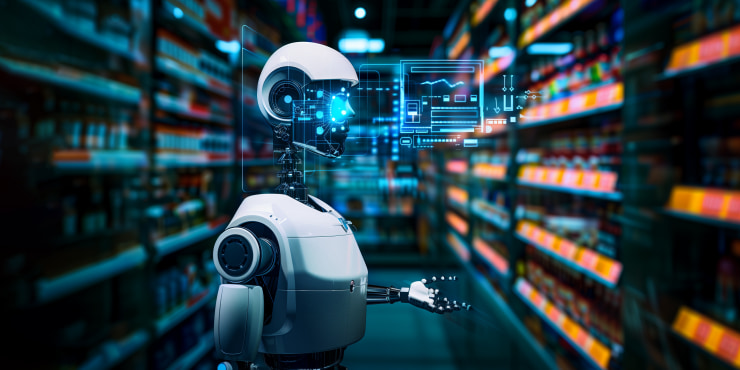Real-world examples show how AI is driving success across industries. From retail to finance, businesses are using AI to solve complex problems, boost efficiency, and deliver better customer experiences. Here are several case studies that highlight the practical impact of AI in business.
Amazon – Personalized Shopping at Scale
Amazon uses AI to recommend products based on browsing history, purchase behavior, and customer preferences. Their recommendation engine accounts for over 35% of total sales. Machine learning algorithms also optimize inventory, pricing, and delivery logistics, making operations more efficient and customer-focused.
HDFC Bank – Smart Customer Support
HDFC Bank in India implemented an AI chatbot called EVA (Electronic Virtual Assistant) that handles millions of customer queries instantly. It understands natural language, provides consistent answers, and reduces the load on customer service teams. The bot helped the bank serve more users with faster response times and greater accuracy.
Coca-Cola – AI in Product Development
Coca-Cola used AI to analyze consumer preferences and social media trends to develop new flavors. For example, the launch of Cherry Sprite was influenced by consumer behavior data captured by AI tools. Coca-Cola also uses AI in vending machine management and inventory optimization.
BMW – AI in Manufacturing
BMW integrates AI across its production lines to detect defects, manage supply chains, and enhance safety. Cameras and sensors powered by computer vision identify irregularities in car components during assembly, improving quality control and reducing waste. AI also helps in predictive maintenance to minimize downtime.
Netflix – Content Recommendation Engine
Netflix uses AI to recommend shows and movies based on a user’s viewing habits. The AI system analyzes what users watch, pause, or skip to provide tailored suggestions. This personalization keeps users engaged and significantly reduces churn. AI also helps Netflix decide which original shows to produce based on viewer data.
American Express – Fraud Detection and Risk Management
American Express leverages AI to monitor transactions in real time and identify fraudulent activities. Their systems analyze millions of data points to detect anomalies and prevent fraud before it impacts the customer. This proactive approach builds trust and protects both users and the company.
Sephora – AI in Beauty Retail
Sephora uses AI to create personalized beauty experiences. Their “Color IQ” and “Virtual Artist” tools help customers find products suited to their skin tone and try makeup virtually. AI chatbots also assist customers with product advice, improving service both online and in stores.
UPS – Optimized Delivery with AI
UPS uses AI-powered route optimization (ORION) to determine the most efficient delivery paths for its drivers. By analyzing traffic data, package volume, and customer location, the system saves millions of miles and gallons of fuel annually. This innovation improves sustainability and operational efficiency.
Spotify – Music Personalization
Spotify’s AI curates personalized playlists like Discover Weekly and Daily Mix by analyzing user behavior, listening history, and song patterns. Their recommendation engine increases user satisfaction and engagement, leading to longer subscriptions and higher retention.
Conclusion
These case studies demonstrate how AI is being successfully integrated into business operations across sectors. From enhancing customer experience to optimizing logistics and reducing fraud, AI helps businesses stay innovative and competitive. As more companies embrace AI, these real-world examples will continue to shape the future of business.







Leave feedback about this